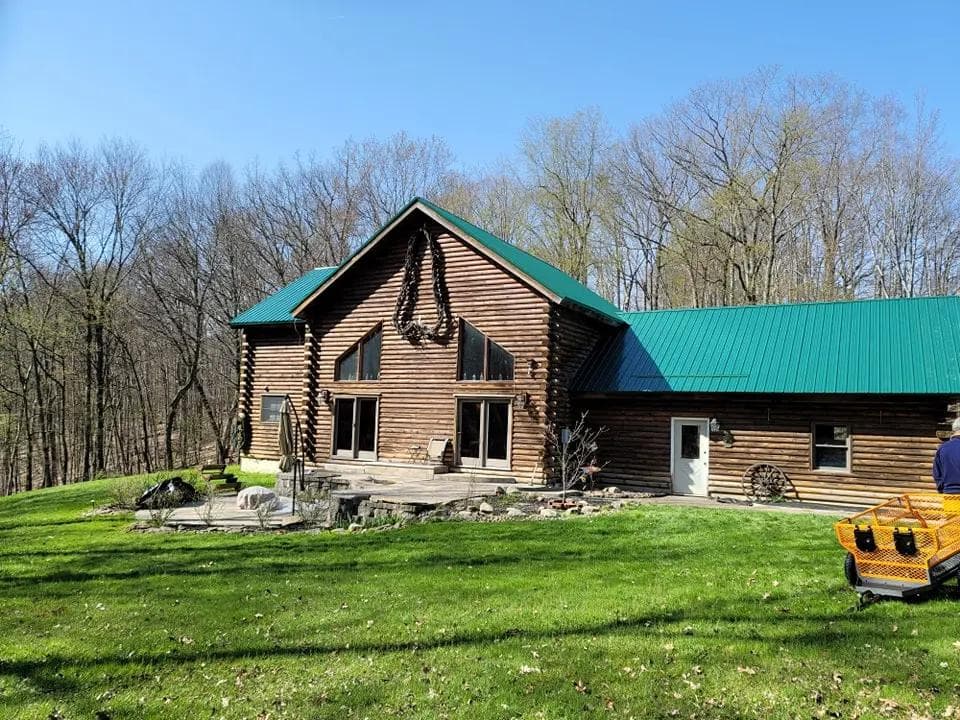
Complete Sheet Metal Roofing Guide
As a homeowner, you want to protect your house—not only is it your home, but it's an investment. For this reason, you want to explore your options when it comes to roofing options. Look no further! Throughout this article, we're going to consider the upsides and downsides of sheet metal roofing, as well as gain a basic understanding of metal roofing.
Benefits of Sheet Metal Roofing
Longevity and durability: It can protect your home for decades when properly installed.
Energy efficiency: It is great at reflecting sunlight, saving on cooling costs.
Eco-friendly: Sheet metal is eco-friendly and recyclable.
Fire resistance: While it may not save your home entirely, it does provide a level of fire resistance above asphalt shingle roofing.
Design versatility: Multiple designs and colors are available to suit your home.
Types of Metal Roofing Sheets
Sheet metal roofing comes in many different materials for different looks and applications.
- Galvanized Steel: Steel coated with zinc for corrosion resistance. Affordable, durable (30-50 years), but heavier and prone to rust if coating is damaged. Common for residential and commercial use.
- Aluminum: Lightweight, corrosion-resistant, and ideal for coastal areas due to salt-air resistance. Lasts 40-70 years, recyclable, but more expensive than galvanized steel. Softer, so dents more easily.
- Copper: Premium, naturally corrosion-resistant, develops a patina over time (50-100+ years). Very expensive, lightweight, and malleable for intricate designs. Often used for historic or high-end projects.
- Stainless Steel: Steel alloy with chromium for superior corrosion resistance. Durable (50-70 years), low maintenance, but costly and heavier. Used in industrial or harsh environments.
- Zinc: Self-healing surface that forms a protective patina, highly corrosion-resistant (80-100 years). Lightweight, eco-friendly, but expensive and softer, requiring careful installation. Less common but growing in popularity.
Maintenance Tips for Metal Roofing
- Regular Inspections: Check twice a year (spring and fall) for loose screws, damaged panels, or rust spots. Look for debris buildup, especially in valleys or near vents.
- Clean Debris: Remove leaves, branches, and dirt with a soft broom or low-pressure hose. Avoid abrasive tools to prevent scratching coatings.
- Clear Gutters: Ensure gutters and downspouts are free of clogs to prevent water pooling, which can lead to corrosion.
- Trim Overhanging Trees: Cut back branches to avoid scratches, debris accumulation, or damage from falling limbs during storms.
- Check Sealants and Fasteners: Inspect caulking around vents, chimneys, and seams. Tighten or replace loose fasteners to prevent leaks.
- Remove Snow/Ice Carefully: Use a roof rake for heavy snow. Avoid chipping ice aggressively to prevent surface damage.
- Address Rust Promptly: For galvanized or stainless steel, sand and treat rust spots with a metal-specific primer and touch-up paint.
- Avoid Harsh Chemicals: Use mild soap and water for cleaning. Harsh chemicals can degrade coatings, especially on aluminum or zinc.
- Professional Repairs: For major damage (e.g., dents, large rust areas), hire a roofing specialist to maintain warranties and ensure proper fixes.
If you have a trusted roofer, taking care of your metal roof is as easy as a phone call. For our WNY readers, visit our metal roofing page and send us a message-we'll take care of you.
Cost Considerations
Cost is always an important factor in deciding if a metal roof is right for you. There are many factors that affect the cost, such as material choice, style, and how difficult the job is to complete. While it may cost more than expected, you have to remember most metal roof materials last anywhere from 30-80 years. A new roof would also increase the value of your home, so try to think of it as an investment.
Metal Roofing FAQs
How does sheet metal roofing compare to asphalt shingles?
- Sheet metal roofing, while more expensive, is likely to last decades longer than asphalt shingles and has lower long-term maintenance costs.
What is the lifespan of sheet metal roofing?
- Metal roofing can last between 30 and 80+ years.
Can sheet metal roofing be installed over existing roofs?
- Yes! Assuming the underlying roof is safe (consult a metal roofing contractor) it may even be a wise decision.
Is it noisy during rain or hail?
- Sheet metal roofs can be noisy during rain or hail. While insulation and underlayment reduce this, some may find it bothersome. For others, rain on a metal roof is a relaxing sound.
Customer Reviews
With over 1000 home projects completed to date, we know how to treat our customers. This is what they’re saying about us.

